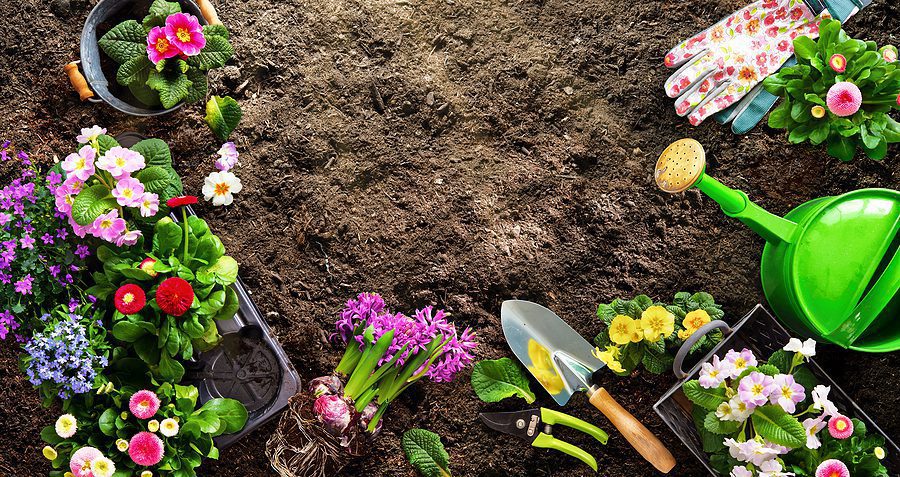How Can I Improve My Garden Soil for Healthier Plants?

Healthy soil is key to a successful garden, and no one knows this better than a gardener.
Throughout the years, I’ve learned a few easy and natural methods to improve my garden’s soil quality, so my plants can access all the nutrients they need to thrive.
But improving soil can be heavy work, especially if you simply want to grow a few vegetables or some strawberries to enjoy the fruits of your labor.
This article will discuss a few simple tips surrounding the appearance of your own garden. These techniques are not only beneficial for your garden’s soil health, but also for making gardening more fun and successful.
Whether you’re a seasoned gardener or you’re just starting out, there’s SOMETHING on this list for everyone who’s looking to step up their gardening game.
Add compost regularly
Mulch garden beds too, all year long. This is very good for the soil, as it makes it richer and also gives little plants much-needed nutrients.
Compost every 4 to 6 weeks for the heavy-feeding plants like tomatoes and peppers. It maintains the soil nutrient content and ensures strong growth.
In the summer, add compost every four to eight weeks, particularly when my plants are flowering. Not only does this practice increase the nutrient content of the soil, it conserves water.
Scanning for signs of deficiency among my plants jogs my memory to replenish the compost when necessary. It’s one of those easy but very worthwhile tricks I use to guarantee success in the garden.
Practice vermicomposting
Incorporating vermicomposting, which transforms food scraps into fertile soil. It’s as you have your own adorable little recycling system behind the house.
Maintain a worm bin and fill it with kitchen scraps such as vegetable peels and coffee grounds. Before long, those workers transform the waste into nutrient-rich vermicompost.
If you apply vermicompost to a garden, you’ll likely see an improvement of plant health. It helps soil structure and beneficial microorganisms.
And it’s an environmentally conscious way to dispose of waste and improve the soil quality of my garden.
Utilize sheet mulching
Use sheet mulching in your garden. It’s an easy method that yields big impact.
Cover the soil with cardboard or newspapers, then organic matter such as leaves and straw. This will help prevent weeds and, over time, it will enrich the soil.
The layering acts as an insulator that prevents moisture from evaporating, too. Your plants will be healthier, and you’ll spend less time weeding.
And, it’s also an environmentally friendly way to reuse materials. What you’ll like about it is it’s a way to sow a little bit of good soil without any effort on my part.
Rotate diverse plant species
Oh and remember to replace what you have taken out with different plant types — guys can’t survive on tomatoes alone. This easy habit will keep your soil healthy and pest free.
Planting different plants each year disrupts the cycles of pests and diseases that are attracted to particular crops. Don’t plant tomatoes where you did last year, for example.
Instead, try swapping them out for beans or leafy greens. This plurality is conducive to a balanced ecosystem and healthier soil. It is incredible how such a small change can make a world of difference to a garden!
Interplant aromatic herbs
Get in the habit of companion planting with herbs in your garden. My plants love it, it tastes great and is good for their overall health.
Herbs such as basil, cilantro, and dill taste good and are good for keeping pests away. This natural pest preventative is a game-changer for protecting my veggies.
Scatter these herbs through your garden beds. This biodiversity results in a lush, full-spectrum environment that enriches the soil without additional chemicals.
Chances are herbs will do just fine beside the rest of the plants in your garden. It’s an easy practice that has brought me visible improvements in the health of my garden.
Use organic fertilizers
Can organic fertilizers make a big difference to your garden’s health? Since they’re natural, they naturally improve the quality of the soil, without the use of chemicals.
Compost, which boosts the soil and the microbial life within it.
When possible, throw in well-rotted manure. It’s a good way to boost nutrition. Peat moss is another good additive that aids in soil structure and aeration.
Migration to organic fertilizers will very likely be rewarded with better growth/increased resilience of your plants.
Create compost tea
One of the best techniques for improving soil quality is by brewing compost tea. It’s so easy and a fantastic way to use up that finished compost.
Compost must, half or more, fill a 5-gallon bucket to make it. Then, fill it nearly to the top with water. Steep it or “fermented” it for a few days.
Once it’s brewed, strain the liquid and apply it as a soil drench around your plants. This feeds their roots directly, and supports your soil’s microorganisms.
Spray the leaves with a diluted spray, which is beneficial for the plant. Plus, it’s a simple way to give my garden a bit of an added boost!
Add aged manure
Using aged manure in your garden could be a big jackpot. It provides the soil with nutrients while enhancing its structure.
Applying well-rotted manure as fresh manure is too powerful and could burn the plants.
Spread it over the surface of the soil at on to two inches. That way, as it decomposes, it gradually supplies nutrients. Try tilling it directly into in the top few inches of soil for an extra burst of power.
(The manure should be aged for a few months before using it.) This not only helps protect from harmful pathogens, but also makes it safe for your garden veggies.
Apply mulch
Mulch is one of best things to do for your garden. It retains water which is extremely important in dry spells.
Organic options like wood chips or straw are good to use because they will decompose over time and return nutrients to the soil.
You’ll want a covering that’s approximately 2-4 inches deep. That keeps the weeds down and the soil temperature in check, which helps keep my plants’ roots healthy. And it will help your garden look tidy.
Avoid tilling the soil
You probably won’t improve your garden’s health by not tilling. The act of tilling disrupts the soil’s structure and injures soil-dwelling organisms that are beneficial. In many cases it results in compaction of the soil, which now becomes more difficult for the roots to penetrate.
Top dress with organic matter such as compost. The benefits get worked into the soil over time. This method also helps control weeds, which is a plus.
Skipping the tilling will keep your soil and the plants it supports in better health.
Perform soil tests
Get into the practice of doing a soil test annually.
When you test your soil, you can get an idea about nutrient levels and pH. That way, you’ll know what your plants need to grow to their best potential.
Mail samples to a local lab, but there are also simple, low-cost home testing kits.
Those tests will tell you an awful lot about what your soil is made of, so you can amend it properly.
Once you have results, if you like, you can improve soil fertility with the types of nutrients or organic matter that the soil lacks.
With this proactive plan, you can look forward to a healthy and producing garden all year.
